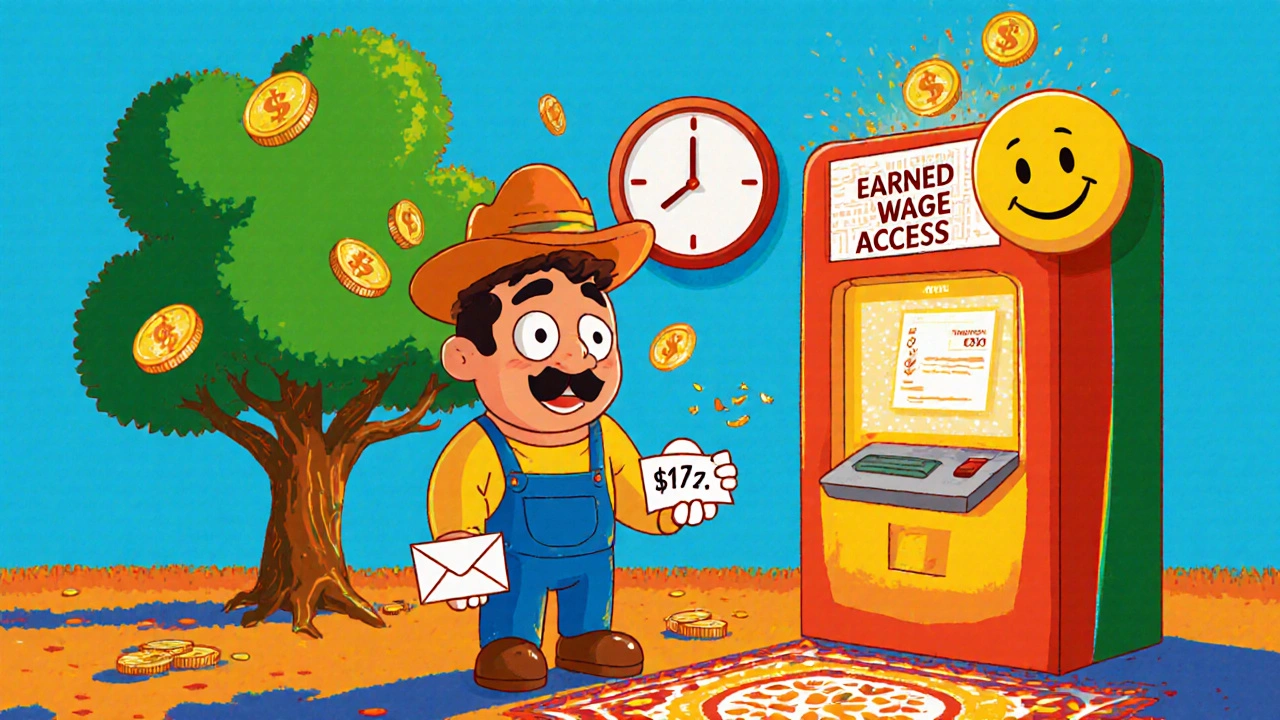On-Demand Pay: How Instant Wages Are Changing How People Get Paid
When you earn money, you should be able to access it—on-demand pay, a system that lets workers access their earned wages before the traditional payday. Also known as instant wages, it’s not a loan, not an advance, and not tied to high fees. It’s simply giving people control over the money they’ve already earned. This matters because millions live paycheck to paycheck, and waiting two weeks for access to earned income can mean choosing between rent and groceries.
On-demand pay isn’t just for gig workers. It’s used by retail employees, nurses, warehouse staff, and delivery drivers who need flexibility. Companies like FlexWage, a platform that integrates with employer payroll systems to offer real-time wage access, and DailyPay, a service that connects directly with HR systems to enable instant payouts are making this possible. These tools work by tracking hours worked in real time and letting employees withdraw a portion of their earned pay—often within minutes. The employer still pays the full wage on the scheduled payday; the platform just gives workers early access, usually for a small flat fee or nothing at all.
This shift is happening because traditional payroll cycles don’t match modern life. People face unexpected car repairs, medical bills, or school fees. On-demand pay helps avoid high-cost payday loans and overdraft fees. It also reduces wage theft prevention, the practice of ensuring workers receive all earned compensation on time, without delays or deductions—a problem that still affects low-wage workers in many industries. When employees can access their money when they need it, they’re less stressed, more loyal, and more productive.
It’s not perfect. Some employers use it as a band-aid instead of raising wages. And not all platforms are transparent about fees. But the trend is clear: workers are demanding control. And as more companies adopt these systems, on-demand pay is becoming a standard feature—not a perk. What you’ll find below are real stories and practical guides showing how people are using this tool to take charge of their finances, avoid debt traps, and build stability without waiting for a biweekly check.

Earned Wage Access vs. Payday Loans: Which One Actually Helps You Stay Out of Debt?
Earned wage access lets you get your own pay early with minimal fees - no interest, no debt. Payday loans trap you in cycles of high-cost borrowing. Learn the real difference and how to avoid predatory lending.

EWA and Credit Scores: Does Early Pay Impact Your Credit Score?
EWA doesn't directly affect your credit score, but it can help you avoid late payments that hurt it. Learn how on-demand pay protects your finances without building credit.